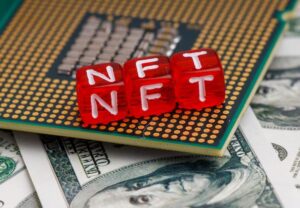
The supply chain management industry is one of the most critical sectors of the economy. It involves the process of ensuring that goods and services are efficiently produced, transported, and delivered to the end consumer. In recent years, there has been a growing interest in the use of blockchain technology in supply chain management. Blockchain technology offers a range of benefits that can help improve the efficiency and transparency of the supply chain. In this article, we will explore the role of blockchain in supply chain management and how it is transforming the industry.
What is Blockchain Technology?
Blockchain technology is a decentralized digital ledger that records transactions and stores them in a secure and tamper-proof way. It is a distributed ledger that allows multiple parties to access the same information in real-time. Each block of information is cryptographically linked to the previous one, creating an unbroken chain of information that cannot be tampered with. Blockchain technology has gained popularity due to its security, transparency, and immutability.
Role of Blockchain in Supply Chain Management
Supply chain management involves various stakeholders, including suppliers, manufacturers, distributors, and retailers. Each of these parties plays a critical role in ensuring the efficient flow of goods and services from the point of origin to the end consumer. The integration of blockchain technology in the supply chain can provide several benefits, including:
- Transparency
Blockchain technology can provide transparency throughout the supply chain, allowing all stakeholders to access real-time information on the movement of goods and services. This level of transparency can help identify any inefficiencies or bottlenecks in the supply chain, allowing stakeholders to make informed decisions to improve efficiency.
- Traceability
Blockchain technology can provide a detailed record of each transaction, creating an unbroken chain of custody for goods and services. This level of traceability can help prevent counterfeiting, reduce the risk of fraud, and ensure that goods and services are delivered to the end consumer in their original state.
- Efficiency
Blockchain technology can help streamline supply chain processes, reducing the time and resources required to manage the supply chain. This can result in cost savings for all parties involved in the supply chain.
- Security
Blockchain technology provides a secure platform for storing and transmitting data, reducing the risk of cyber-attacks and data breaches. This level of security is critical in the supply chain industry, where sensitive information is often transmitted between parties.
- Compliance
Blockchain technology can help ensure compliance with regulatory requirements, such as product safety and quality standards. The use of blockchain technology can help ensure that all parties in the supply chain are adhering to these requirements, reducing the risk of regulatory violations.

Applications of Blockchain in Supply Chain Management
- Supply Chain Visibility
Blockchain technology can provide real-time visibility into the movement of goods and services across the supply chain. This level of visibility can help stakeholders identify inefficiencies and bottlenecks in the supply chain, allowing them to make informed decisions to improve efficiency.
- Inventory Management
Blockchain technology can help improve inventory management by providing real-time data on the availability and movement of goods and services. This can help reduce stockouts and overstocking, improving the efficiency of the supply chain.
- Smart Contracts
Blockchain technology can be used to create smart contracts that automate certain aspects of the supply chain. Smart contracts can help reduce the time and resources required to manage the supply chain, improving efficiency and reducing costs.
- Product Traceability
Blockchain technology can provide an unbroken chain of custody for goods and services, enabling stakeholders to trace the movement of products from the point of origin to the end consumer. This can help prevent counterfeiting, reduce the risk of fraud, and ensure that goods and services are delivered to the end consumer in their original state.
- Payment Processing
Blockchain technology can be used to facilitate payment processing across the supply chain. This can help reduce transaction costs and processing times, improving the speed and efficiency of the supply chain. The use of blockchain technology in payment processing can also improve transparency and reduce the risk of fraudulent activities.
Highlights of Supply Chain Management :
Another application of blockchain technology in supply chain management is the creation of digital identities for goods and services. Digital identities can be used to authenticate products and ensure that they meet specific quality and safety standards. This can help improve consumer trust and reduce the risk of fraud in the supply chain.
Finally, blockchain technology can be used to create a decentralized marketplace for the buying and selling of goods and services. This marketplace can provide a secure and transparent platform for buyers and sellers to transact without the need for intermediaries. This can help reduce costs and improve efficiency in the supply chain.
Conclusion
The integration of blockchain technology in supply chain management has the potential to transform the industry by providing transparency, traceability, efficiency, security, and compliance. The use of blockchain technology can help reduce costs, improve efficiency, and increase transparency in the supply chain. As the technology continues to evolve, we can expect to see more innovative applications of blockchain in supply chain management.




